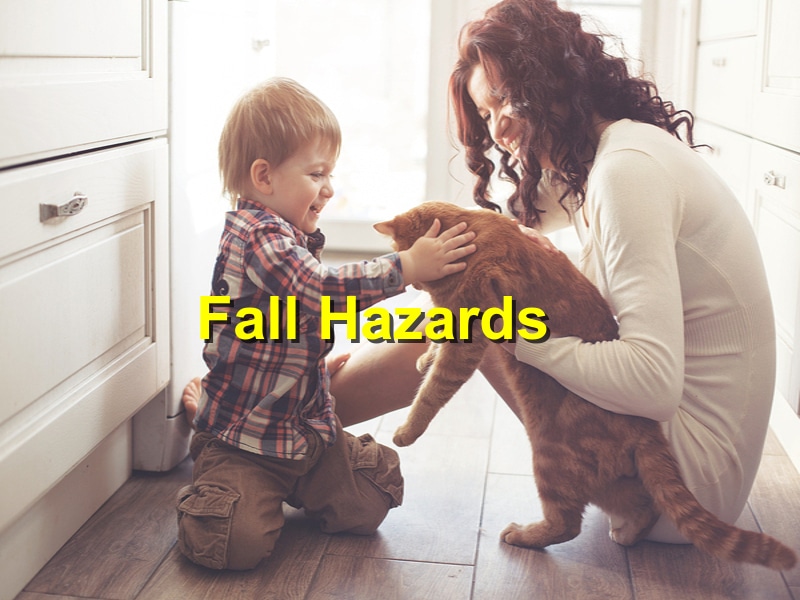Fall Pet Emergency: Protecting Your Pets from Fall Hazards

Fall 2025 brings crisp air, colorful leaves, and seasonal activities, but it also introduces hazards for pets, from toxic plants to cold-weather risks. With 65% of pet owners unaware of autumn-specific dangers, proactive measures and quick emergency responses are vital to keep dogs, cats, and other animals safe. Here’s how to protect your pets from fall hazards and handle emergencies effectively.
Avoid Toxic Plants and Foods
Fallen leaves, acorns, and seasonal plants like chrysanthemums can be toxic to pets. Acorns and mushrooms, common in fall, may cause vomiting or kidney damage if ingested. Human foods like grapes (in harvest season) or pumpkin-spiced treats with xylitol are also dangerous. To manage:
- Prevent Access: Clear yards of fallen debris and fence off garden areas with toxic plants.
- Act on Ingestion: If your pet consumes a suspect item, note the amount and type, then call your vet or the ASPCA Poison Control Hotline (888-426-4435). Symptoms like vomiting or lethargy need immediate attention.
- Use Safe Alternatives: Offer pet-safe treats and avoid sharing fall foods like pies. A 2024 report noted a 15% rise in poisoning cases during fall, so keep risky items out of reach.
Guard Against Antifreeze Poisoning
Antifreeze, often used in car maintenance during fall, contains ethylene glycol, which is deadly to pets even in small amounts. A single teaspoon can cause kidney failure in cats. To prevent and respond:
- Store Safely: Keep antifreeze in sealed containers on high shelves. Clean spills immediately, as pets are drawn to its sweet taste.
- Recognize Symptoms: Look for drunken behavior, vomiting, or seizures within hours of exposure. Rush to a vet if suspected, as treatment within 1–2 hours is critical.
- Choose Pet-Safe Options: Use propylene glycol-based antifreeze, which is less toxic. Store a pet first-aid kit with vet contact info for emergencies.
Manage Cold-Weather Emergencies
Early frosts and chilly nights increase risks of hypothermia or frostbite, especially for short-haired or senior pets. If your pet shows signs like shivering, slow breathing, or pale gums:
- Warm Immediately: Move them to a warm, dry area and wrap in blankets. Use warm (not hot) water bottles to raise body temperature gradually.
- Monitor and Seek Care: Check their temperature (normal is 100–102.5°F); if below 99°F, contact a vet. Hypothermia cases rise 20% in fall, per vet records.
- Prevent Exposure: Limit outdoor time below 40°F and use pet jackets or booties for walks. Clear ice from paths to prevent slips.
Prevent Escapes During Fall Activities
Fall events like harvest festivals or leaf-raking can lead to escapes, with shelters seeing a 10% uptick in lost pets. Ensure collars have updated ID tags and microchips are registered. If your pet escapes:
- Search Promptly: Check nearby hiding spots and post on local social media or apps like Petco Love Lost.
- Use Visibility Aids: Equip pets with reflective collars or LED tags for evening walks, as daylight fades earlier.
Handle Decoration and Wildlife Risks
Fall decorations like cornstalks or candles can cause choking or burns. Wildlife, like rodents seeking warmth, may carry diseases. Secure decorations, use flameless candles, and monitor for unusual behavior. If bitten or scratched by wildlife, clean wounds and consult a vet for rabies concerns.
Prepare for Emergencies
Stock a pet emergency kit with bandages, antiseptic, and a thermometer. Save your vet’s number and locate a 24-hour clinic. Post signs to remind guests to secure gates during fall gatherings.
By addressing toxic plants, antifreeze, cold-weather risks, escapes, and decorations, and preparing for emergencies, you can ensure your pet’s safety during fall 2025, making the season enjoyable for all.
References: Halloween Safety
Comments
Post a Comment